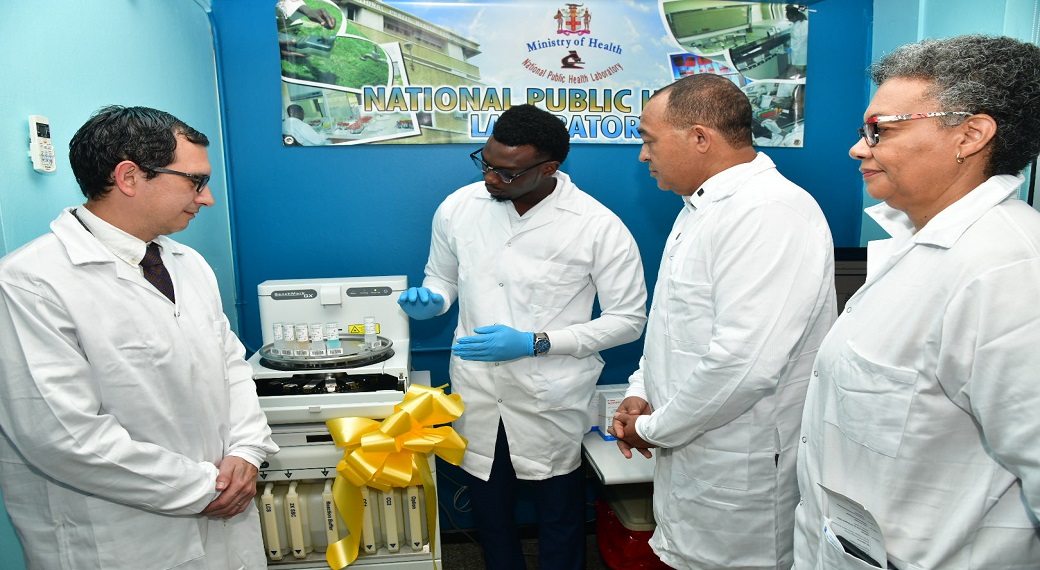

A new state-of-the-art immunohistochemistry (IHC) machine, installed at the National Public Health Laboratory in Kingston, was commissioned into service yesterday (January 15).
The unveiling of the VENTANA® BenchMark GX, valued US$419,584.38, is intended to strengthen the Ministry of Health and Wellness’ capabilities in managing breast cancer analysis, diagnosis and treatment.
The ministry partnered with Roche, one of the largest biotechnical companies globally, for the undertaking.
Portfolio Minister, Dr Christopher Tufton, said the acquisition marks a major step in further enhancing Jamaica’s diagnostic capacity and will support the Ministry’s efforts to improve breast cancer care in the health system.
“The need for diagnostics is a big one in our public health system, and I am prepared to say we are not where we want to be. We have acquired a few mammograms over the last year and others are supposed to be coming in. We… want to ensure that the initial screening, even before lab testing, is easier to assess as we encourage more persons to access,” he stated.
While acknowledging, “We are better off today than we were [approximately] five years ago”, the minister maintained that “it’s a journey that has to continue if we are to stem the late detection and, unfortunately, the mortality rates in terms of late detection”.
Dr Tufton emphasised that early diagnosis is critical in providing the necessary treatment and saving lives, noting data indicating that one in 21 women will be diagnosed with breast cancer.
He indicated that through the ‘Know Your Numbers’ Initiative, more than 100,000 tests were conducted. The initiative aims to encourage more Jamaicans to get screened for lifestyle diseases.
“We are going to be doing a lot more of that as part of the policy initiative to get more in,” he said, adding that through the Ministry’s mobile health centres, more persons will have access to healthcare services in small towns and communities.
Additionally, Dr Tufton said more will be done to normalise the concept of screening for lifestyle diseases in order to support early detection and, by extension, a longer and better quality of life, particularly through the Ministry’s primary healthcare reform programme.
Dr Tufton said the work undertaken at the National Public Health Laboratory is crucial in providing diagnostics for the tests that have been undertaken through various programmes.
“Right now, every month, some 40,000 samples are collected [and] some 200,000 tests are conducted… using approximately 20 machines which essentially provide the critical diagnosis for Jamaicans right across the length and breadth of the country as to their health status, and that is done by 250… employees,” he informed.
Dr Tufton also indicated that the ministry is moving towards having adequate diagnostic equipment within all the necessary health facilities as part of “helping or supporting the screening and the determination process as to what the status of the health of an individual is”.
Additionally, he said the Ministry is introducing a policy that will result in the long-term engagement of service contractors to repair and maintain equipment at health facilities.
Disease Area Strategy Director, Roche Caribbean, Central America and Venezuela, Juan Cruz, said the equipment’s provision will enable Jamaica to optimise the national breast cancer testing regime and improve biomarker testing and diagnosis.
“This collaboration is another important step in the country’s commitment to having the required diagnostic capacity for a personalised approach to breast cancer, continuing the work that we began since 2015,” he said.
Related News

4, including foreign nationals, booked after gun find in downtown Kgn

Ian Kelly ascends to CEO role at Derrimon Trading

Police commander out west warns against New Year gun salutes


